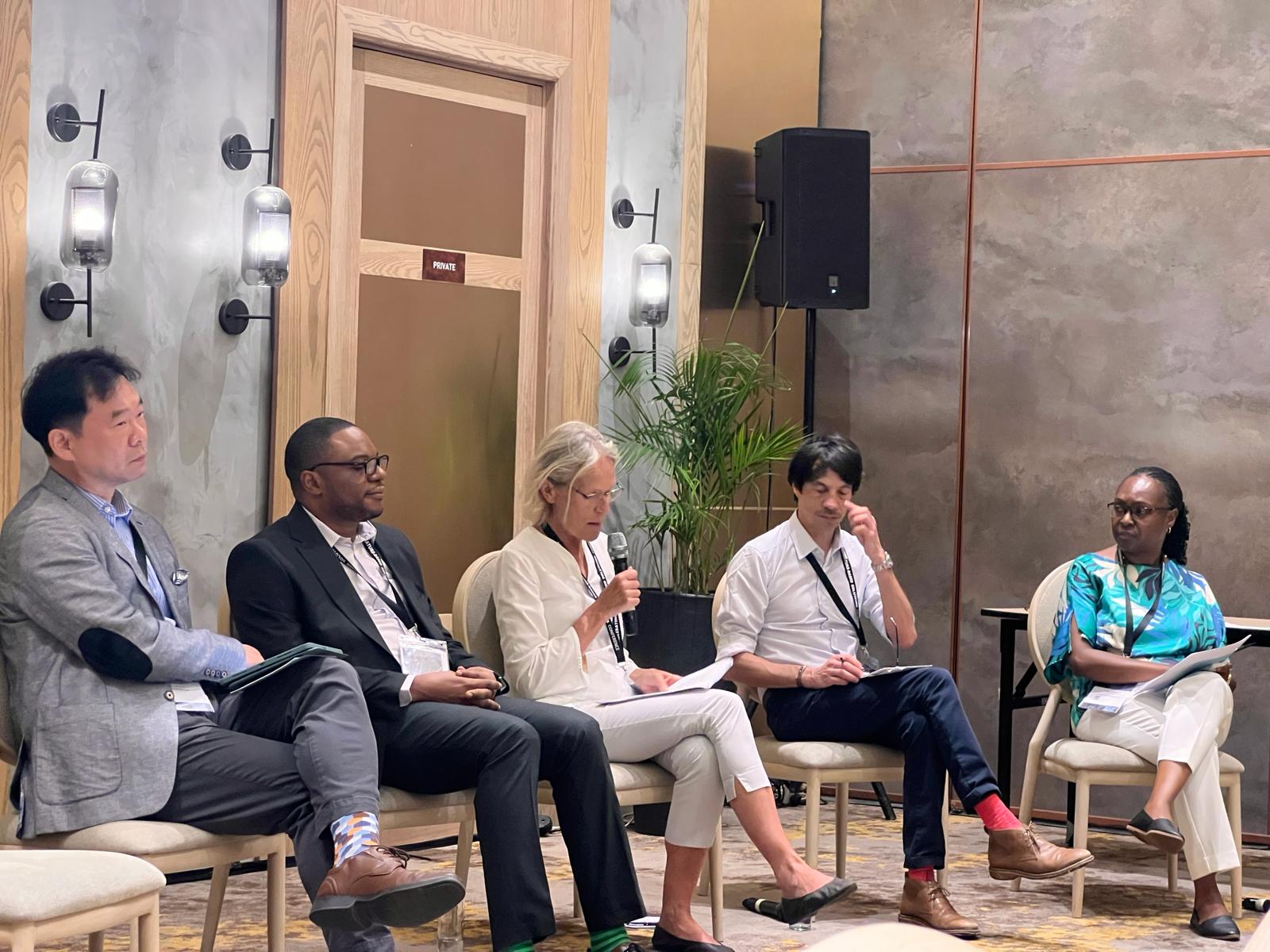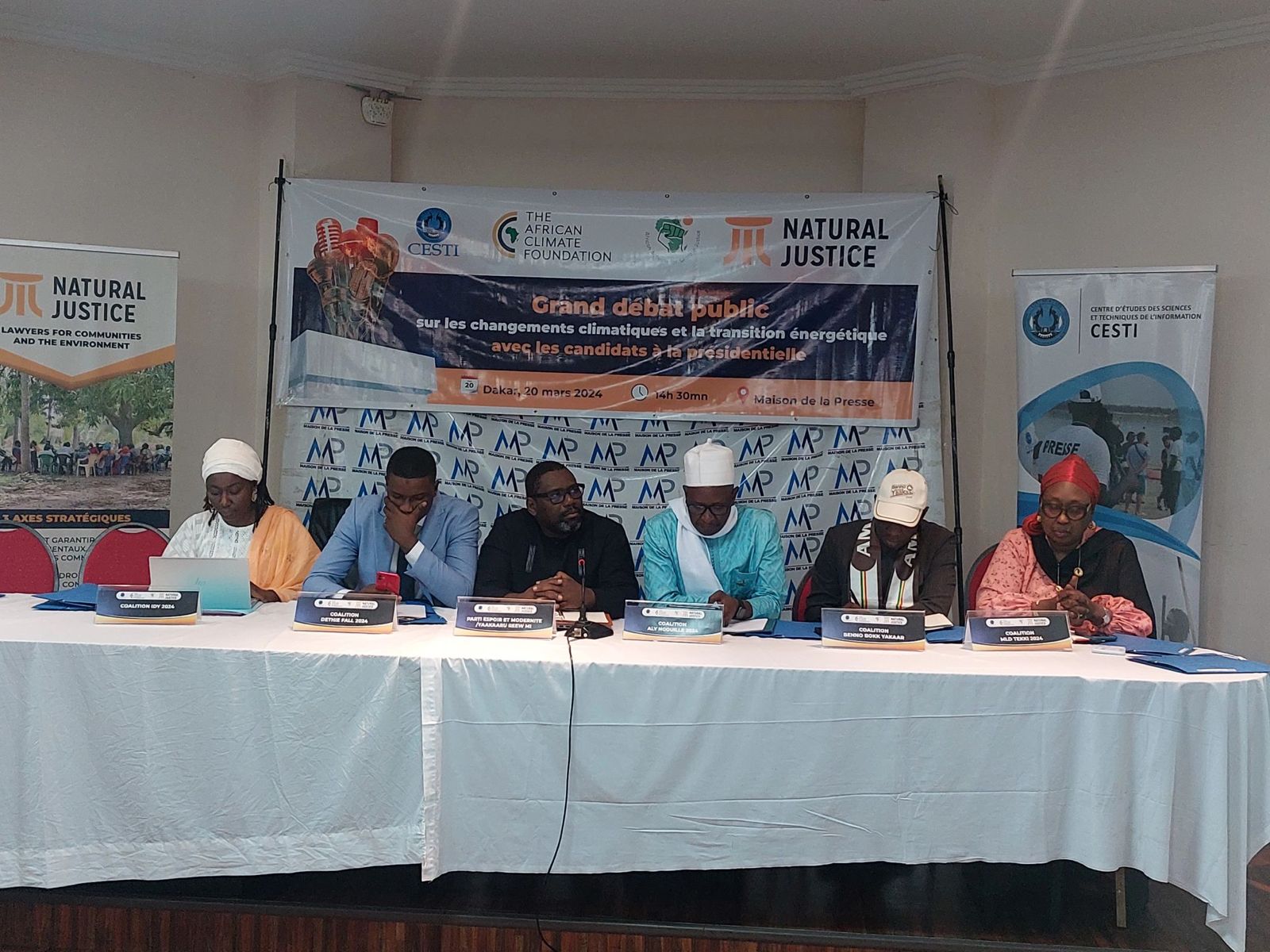There is a lot of debate in South Africa about what a just transition entails, with union leaders emphasising that it is about creating decent jobs for vulnerable workers for every job that is lost.
At an event on Tuesday at the South African pavilion at COP26, voices from unions, the PCC and industry spoke about how to deliver a social compact in the just transition debate.
Samantha Smith, director of the Just Transition Centre which has union Cosatu as one of its affiliates, explained that a just transition has two things at its core.
“One is the creation of decent work; jobs that are at least as good as the jobs that people had before. And the second is social protection, not just for people losing their jobs, but for everyone.”
She believed South Africa’s climate transition would be the biggest in the world.
“It makes Germany’s transition, the coal transition that is happening so far, pale in comparison to what is in store for South Africa,” she said.
According to Smith there were only 25 000 to 30 000 workers in Germany’s coal industry.
“There are about 10 times as many in South Africa, and many, many more who are indirectly employed in the value chain of coal,” she said.
The climate finance announced at the COP26 talks could be a great injection for the just transition, Smith said.
“We, from the union movements, are cautious but supportive about the big announcement on climate finance.”
It remains to be seen whether the finance deal was all that it promised to be.
“If this finance is not simply more loans or debt that increases South Africa’s debt burden, if it is indeed a grant, if it is used to finance job plans – not only for workers employed directly in coal plants and coal mines, but also indirectly employed workers – if it is used to clean up air, water and land for communities, than it can be a great example of what can happen in other countries.”
But Smith said that if the loan was only about privatising energy and giving foreign companies entry into the energy sector in SA without proper employment for people in that sector, then it was not going to be a good thing.
Fellow trade unionist, Cosatu’s national labour market policy co-ordinator Lebogang Mulaisi, agreed that South Africa’s climate transitions would be one of the biggest of any economy in history. Mulaisi is part of the PCC and is at the coalface of climate policy in South Africa, which means that she grapples with the question of just transition every day.
“We could just say we are moving from one energy to another, but it is so much more than that,” she said. “And how can we assure that we leave no one behind.”
Mulaisi said South Africa was at a crossroads and that its climate transition was an opportunity to sort out some of the systemic issues of its society.
“We could break the back of these issues that plague us,” she said.
“Just transition is the buzzword, but we can’t keep throwing it around if it is not meaningful, if it doesn’t materialise real change.”
It was crucial to recognise the element of justice, something very important for South Africa. “It’s not ok to have such an unequal country. This is our opportunity,”
She emphasised that the burden of a meaningful transition was on all of the members of the PCC. “The plan that we advise, the outcome must mean something.”
Makoma Lekalakala, director of environmental justice organisation Earthlife Africa in Johannesburg, said no vulnerable person could be left behind.
“It’s lived experiences that push us towards a just transition. We need an open democracy. This transition needs every one of us. We need a system that asks what people’s needs are and how to serve. This is not just a transition, it is a just transition,” she said.
Shamini Harrington, Sasol vice-president for climate change, believed that people were at the centre of the move to a low carbon world.
“How do we move people from where they are today, to new low-carbonised sectors? New opportunities need to be localised and we need to see more jobs.”
She said there were many new opportunities in the coming transition, including in the green hydrogen economy and renewables. But it was critical, Harrington said, that those opportunities be in South Africa to create more jobs.
Harrington said businesses realised that they needed to transform, because border taxes around carbon were coming. She also said that people on the ground found the change daunting, because not being able to work in a certain sector made people ask how they would feed their family in the future.



